Nic Pizzolatto Quotes & Sayings (Page 4)
Nic Pizzolatto quotes and sayings page 4 (novelist). Here's quote # 31 through 40 out of the 48 we have.
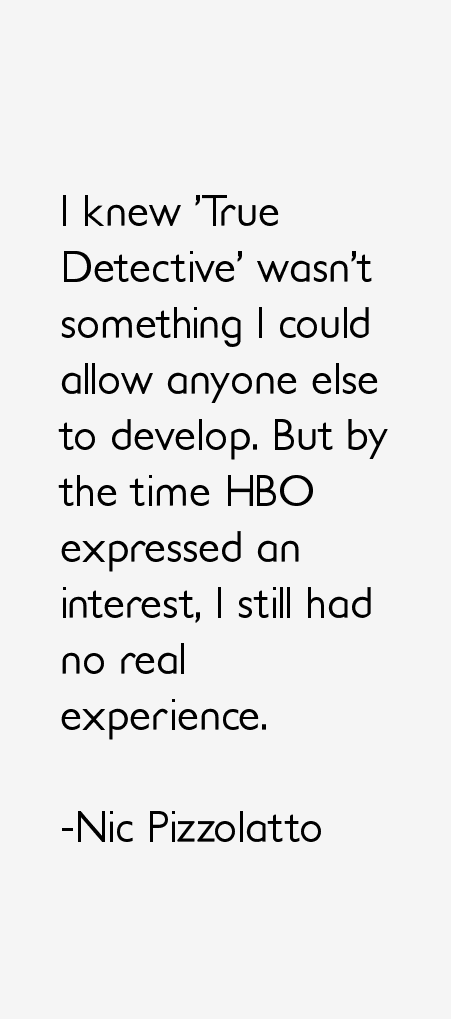
“I knew 'True Detective' wasn't something I could allow anyone else to develop. But by the time HBO expressed an interest, I still had no real experience.”
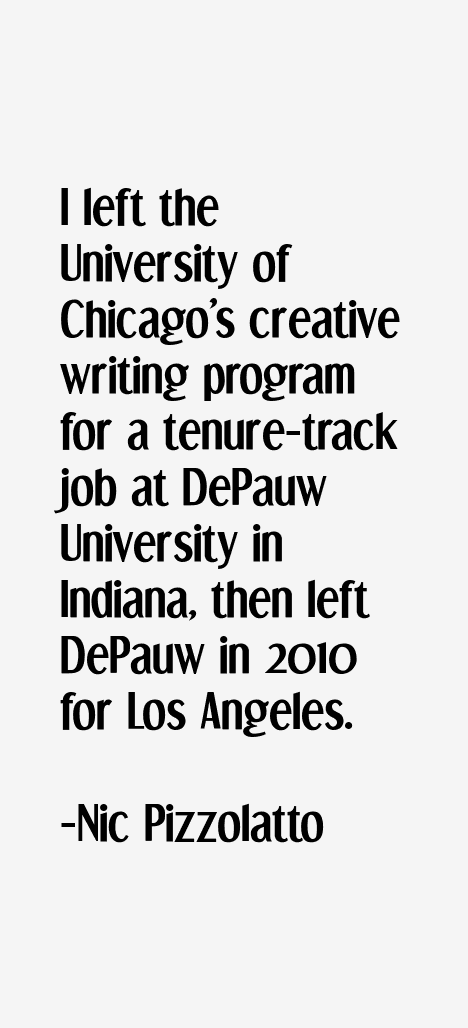
“I left the University of Chicago's creative writing program for a tenure-track job at DePauw University in Indiana, then left DePauw in 2010 for Los Angeles.”
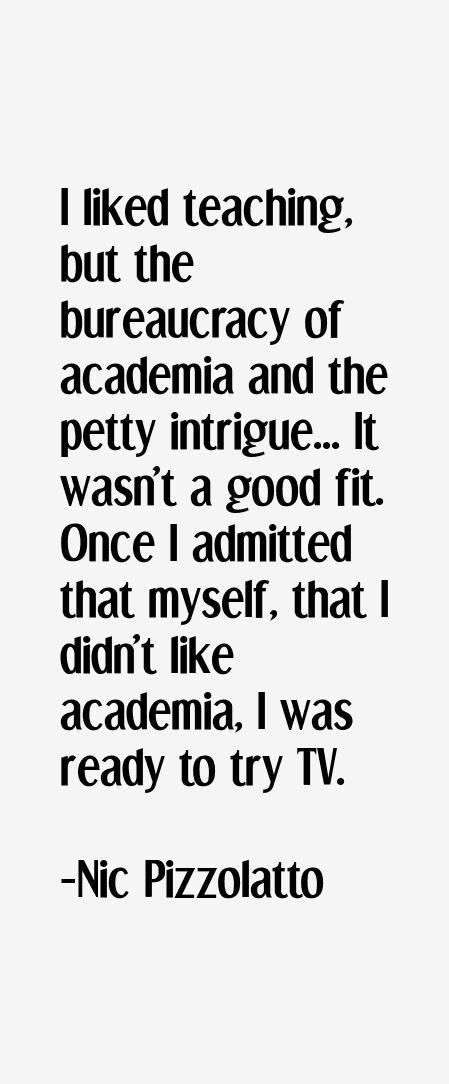
“I liked teaching, but the bureaucracy of academia and the petty intrigue... It wasn't a good fit. Once I admitted that myself, that I didn't like academia, I was ready to try TV.”
“I read 'The Conspiracy Against the Human Race' and found it incredibly powerful writing. For me as a reader, it was less impactful as philosophy than as one writer's ultimate confessional: an absolute horror story, where the self is the monster.”
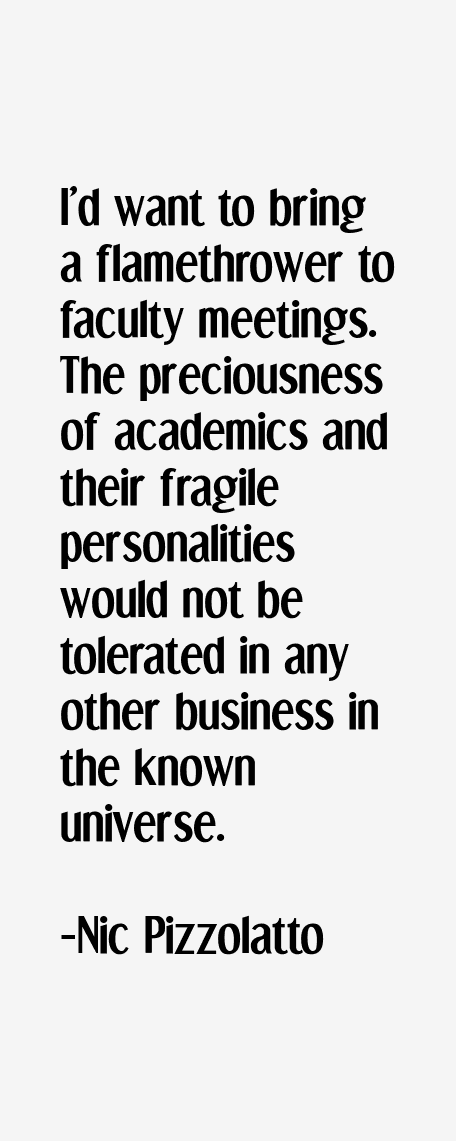
“I'd want to bring a flamethrower to faculty meetings. The preciousness of academics and their fragile personalities would not be tolerated in any other business in the known universe.”
“If there was one overarching theme to 'True Detective,' I would say it was that, as human beings, we are nothing but the stories we live and die by - so you'd better be careful what stories you tell yourself.”
“If you are a certain kind of hands-on learner and have been in a writers room and know how scripts get made, and you know what pre-production is, then mostly it's making sure the actors get what they need, and you are providing creative oversight while allowing room for everyone else to own the material, too.”
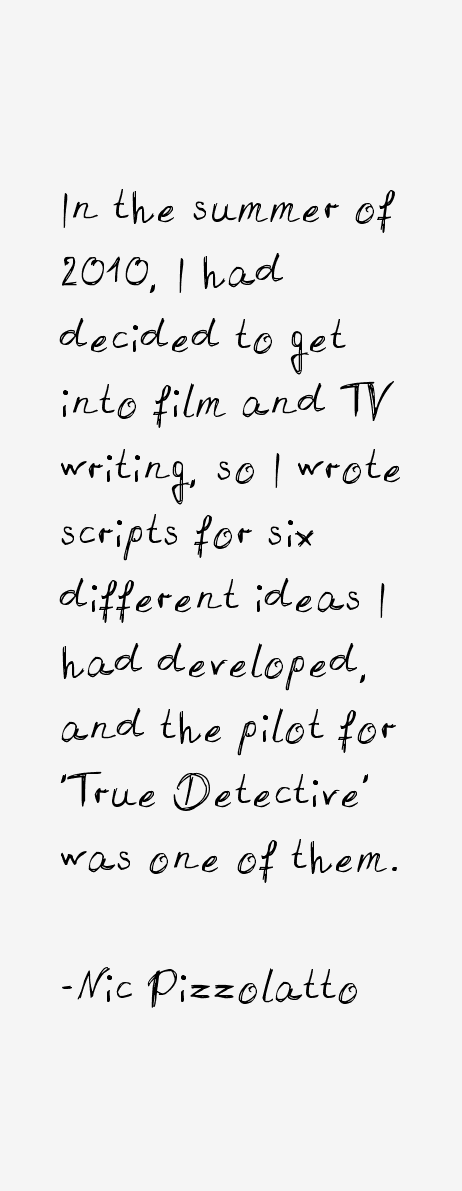
“In the summer of 2010, I had decided to get into film and TV writing, so I wrote scripts for six different ideas I had developed, and the pilot for 'True Detective' was one of them.”
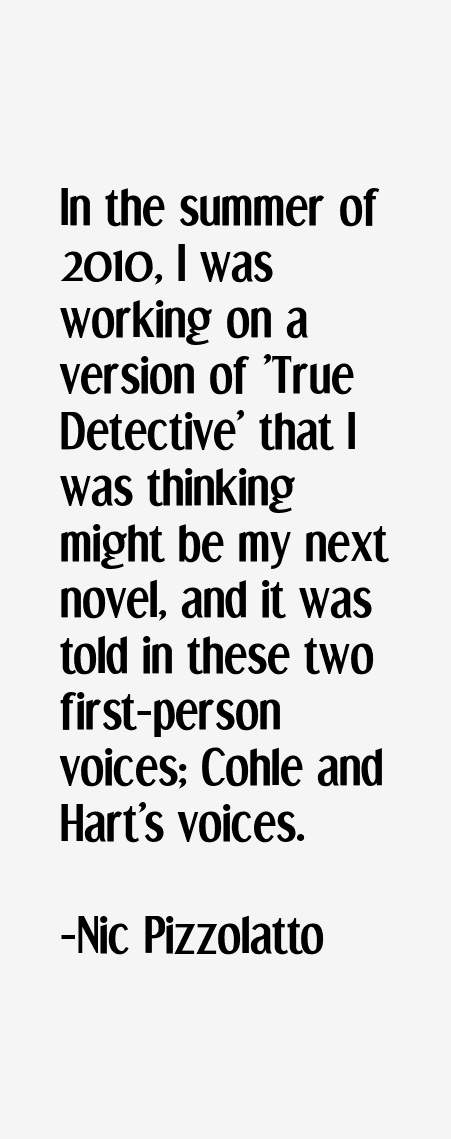
“In the summer of 2010, I was working on a version of 'True Detective' that I was thinking might be my next novel, and it was told in these two first-person voices; Cohle and Hart's voices.”

“It's your job to come up with compelling characters who speak to an individual authenticity. If I'm not interested in the characters, I can't go on. I have to be fascinated by them.”
Nic Pizzolatto Quotes Rating
No Ratings Yet
Leave A Comment
























